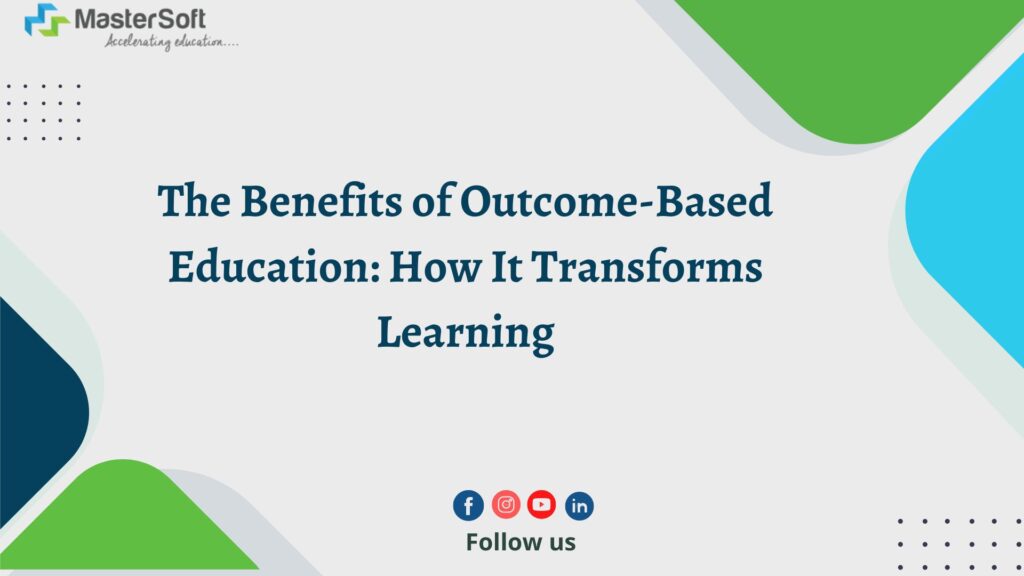Outcome-based education (OBE) is an educational approach that focuses on defining specific learning outcomes and aligning teaching and assessment methods to achieve those outcomes. Rather than emphasizing the content coverage, OBE prioritizes the skills, knowledge, and competencies that students should acquire. This shift in focus has several benefits that can transform learning. Here are some of the key advantages of outcome-based education:
Outcome-based education transforms learning by shifting the focus from content coverage to measurable outcomes, promoting relevant skills, fostering personalization, encouraging higher-order thinking, utilizing authentic assessment methods, fostering continuous improvement, and ensuring accountability and quality assurance. By embracing OBE, educational institutions can better prepare students for the challenges of the 21st century and equip them with the skills and competencies they need to succeed in their future endeavors.
- Clear Learning Objectives: OBE provides clear and measurable learning objectives, which helps both students and educators understand what is expected. By defining specific outcomes, students have a clear understanding of what they need to achieve and can track their progress throughout the learning process. This clarity enhances student engagement and motivation.
- Relevant and Applicable Skills: Outcome-based education emphasizes the development of practical skills that are relevant to real-world applications. By aligning the curriculum with specific outcomes, students are equipped with the knowledge and competencies that are directly applicable in their chosen fields or future careers. This ensures that education is not just theoretical but also practical and useful.
- Flexibility and Personalization: OBE allows for flexibility in how students achieve the desired learning outcomes. It recognizes that students have different learning styles, interests, and abilities. Educators can design a variety of learning experiences and assessment methods to cater to diverse student needs. This personalized approach promotes individual growth and maximizes student success.
- Higher Order Thinking: OBE encourages higher-order thinking skills such as critical thinking, problem-solving, creativity, and analysis. By focusing on outcomes rather than content, students are encouraged to think deeply, apply their knowledge to complex situations, and develop a deeper understanding of concepts. This prepares them to become independent learners and adaptable problem solvers.
- Authentic Assessment: OBE promotes authentic assessment methods that evaluate students’ abilities to apply their knowledge and skills in real-life contexts. Traditional assessments, such as memorization-based exams, are often replaced with performance-based assessments, portfolios, projects, and presentations. These assessment methods provide a more accurate representation of students’ abilities and better prepare them for the challenges they will face in their careers.
- Continuous Improvement: Outcome-based education promotes a culture of continuous improvement in both students and educators. Regular assessment and feedback allow students to reflect on their progress, identify areas for improvement, and set goals for further development. Similarly, educators can assess the effectiveness of their teaching strategies, modify instructional approaches, and adapt the curriculum to better meet the desired outcomes.
- Accountability and Quality Assurance: OBE enhances accountability by ensuring that education is focused on achieving specific outcomes. It provides a framework for quality assurance, as the curriculum, teaching methods, and assessment strategies are aligned with the desired outcomes. This allows educational institutions to measure their effectiveness, identify areas for improvement, and maintain consistent educational standards.


